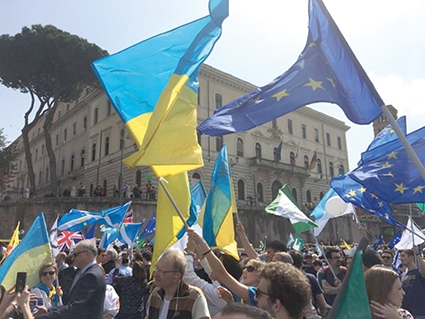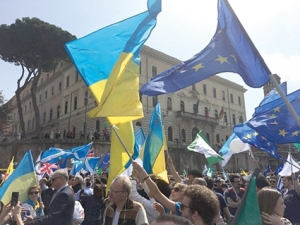Economy & Nationalism: Changes in the Russian Western Borderlands
Analysis
NATO expansion in eastern Europe as well as the former Soviet space constitutes a problem for Russia. The logic goes that the powerful military alliance engulfing Russia’s western borderlands could potentially constrain Moscow’s actions as regards exerting its geopolitical influence in Ukraine, Belarus and elsewhere.
The military threat to Russia emanating from Europe was essential in Russian geopolitical thinking. Historically, Europeans mounted large scale campaigns and there were even cases when the dismantling of the Russian state was almost in sight. Quite logically, when the Russians see the modern NATO expansion, Western exercises and the US military equipment sent to Kyiv and Tbilisi, they remember what happened under previous European leaders in earlier centuries.
However, in geopolitics, it is better to think and view the events from a longer-term perspective. NATO expansion is significant, but it is still a military alliance and, like every other alliance in world history, it will stop operating one day. What can be longer-lasting though, are those changes which have taken place in Ukraine and Belarus over the last three decades. Among them nationalism and economics are major phenomena.
I have written previously that both Ukraine and Belarus are essential for Russia as buffer states against the West. A major means for Moscow to exercise this policy was to try to assimilate the Ukrainians and Belarusians and keep the lands in the Russian economic orbit. The Romanov dynasty constrained nascent Ukrainian and Belarussian nationalism. The late 19th century was crucial as it saw the Russian imperial authorities realize that nascent Ukrainophilism had transformed into a full-scale movement for attaining larger rights for Ukraine.
The Soviet period was relatively calm, but it was evident that the western half of Ukraine was nationalistic and that it was only a matter of time before Ukraine would try to split from its Russian neighbor.
What is seen today in Ukraine, following the Maidan revolution of 2014, is the splitting of the state from Russia, perhaps the final stage to what began in the 19th century. For the Russians, NATO in Ukraine is a difficult issue to stomach, but the Ukrainian sense of independence from the Northern Slavs is more fundamental. Whatever the problems are in the European Union or with US support, Kyiv will likely remain deeply anti-Russian, as half of the country is nationalistically charged while the other is at best neutral or even slightly pro-Russian. The maximum the Russians can hope for is some additional territories in the east of Ukraine, still much less than what Russians controlled historically.
The same goes for Belarus. While it is true that nationalism in the country is nascent and religious, cultural as well as economic relations with Russia prevail. But if we look at the Belarusian independence from a wider – century-old perspective – it will be difficult for Russia to dominate this section of its western borderlands. It is only a matter of time (perhaps years or even decades) before Belarusian nationalism will be invigorated. That is not to say that this will happen necessarily against the Russians, but it will nevertheless make the geopolitical reality more difficult for them.
If nationalism constituted a virtual limitation of Russia’s influence in its western borderlands, economics plays no less a role. The protection of Belarus and Ukraine from the Western economic influence was one of the fundamentals of the Russian power. But this is also changing. Ukraine is now more and more related to the EU, did not become a member of the Eurasian Economic Union (EEU) and it is for the moment unlikely that this will happen any time soon.
With Belarus, it is a different story. The country in in the EEU, but nevertheless there are signals that Minsk also wants to widen relations with Western partners and China.
Thus, when we discuss what constituted Russian fundamental influence in the western borderlands, we should always remember that Russian economic dominance as well as weak Ukrainian and Belarusian nationalisms were backbones to Russia’s state power. This has been changing since the collapse of the Soviet Union in 1991 and there are signs that the process is quite fundamental.
By Emil Avdaliani











